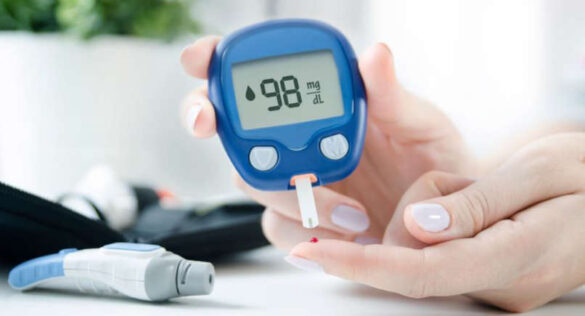Insulin resistance and metabolic syndrome are closely related conditions that significantly impact metabolic health and can lead to serious health complications associated such as type 2 diabetes, stroke, heart disease, cardiovascular disease and metabolic form of cancers.
Insulin Resistance
Insulin is a hormone produced in the pancreas. Insulin plays a key part in using food, especially carbohydrates, for energy. All simple carbs convert quickly to glucose. When blood glucose levels rise after a meal, the pancreas releases insulin to direct those sugars into the proper cells to be used for fuel. This lowers the blood glucose in the bloodstream. Insulin resistance occurs when cells in the body, especially muscle, fat, and liver cells, do not respond effectively to insulin. High-sugar and high-carbohydrate diets overwhelm insulin, leaving higher levels of sugar in the bloodstream. When cells become resistant to insulin, the body needs more insulin to help glucose enter cells.
What causes Insulin resistance?
The most common cause of insulin resistance is metabolic syndrome. That also include obesity, especially around the abdominal, high blood pressure, elevated cholesterol and triglycerides.
Metabolic Syndrome:
Sadly, only 12% of people in the United States who meet the normal criteria to be considered metabolically healthy.
Metabolic syndrome is a cluster of conditions that occur together, increasing the risk of heart disease, stroke, and type 2 diabetes.
According to the National Cholesterol Education Program (NCEP) Adult Treatment Panel III (ATP III), metabolic syndrome is diagnosed when at least three of the following criteria are met:
1.Abdominal Obesity (Waist Circumference): How much inflammatory visceral fat is stored in the abdomen. Waist circumference should not be greater than 40 inches in men and 35 inches in women.
High Triglycerides: The standard criteria are 150 mg/dL or higher or being treated for high triglycerides.
Low HDL Cholesterol: It indicates how well cholesterol is being cleared from the bloodstream. Less than 40 mg/dL in men and less than 50 mg/dL in women or being treated for low HDL.
High Blood Pressure: Insulin resistance causes the vessels to not dilate well, making the heart work harder to pump blood through the body. 130/85 mm Hg or higher or being treated for hypertension.
Elevated Fasting Glucose and Hemoglobin A1C: According to the CDC, more than 37.3 million Americans have type II diabetes, and roughly 96 million people- 1 in 3 adults have pre-diabetes. Diabetes is the most expensive health crisis in the United State, costing $327 billion dollars per year!
Elevated fasting glucose and Hemoglobin indicates that insulin resistance is blocking glucose from getting into the cell.
Underlying Causes of Insulin Resistance:
Obesity: Particularly central obesity also none as abdominal fat is associated with insulin resistance.
Sedentary Lifestyle: Lack of physical activity. Without regular physical activity, your body’s ability to use insulin effectively is impacted.
Unhealthy Diet: A diet high in refined carbohydrates and processed foods, sugar, and unhealthy fats, all causes frequent blood sugar spikes and an increase in insulin.
Genetics: Family history can increase risk. Certain gene mutations can effect your ability to regulate insulin.
Effects:
Cardiovascular Disease: Increased risk due to high blood pressure, abnormal cholesterol levels, and other factors.
Type 2 Diabetes: Elevated blood sugar levels and insulin resistance can progress to diabetes.
Fatty Liver Disease: Increased risk of non-alcoholic fatty liver disease.
Management and Prevention
Lifestyle Modifications:
Healthy Diet: Emphasize whole foods that are whole and unprocessed, fruits, vegetables, lean proteins, and healthy fats. Avoid processed foods, sugary drinks, and high-fat meats.
Regular Physical Activity: Aim for at least 150 minutes of moderate-intensity exercise per week.
Weight Management: Achieve and maintain a healthy weight.
Stress Reduction: Practices such as mindfulness, meditation, and adequate sleep can help manage stress levels.
Medical Interventions:
Metformin is often prescribed for insulin resistance and type 2 diabetes.
Medications for blood pressure, cholesterol, and blood sugar levels as needed.
Monitoring: Regular health check-ups to monitor blood pressure, glucose levels, and lipid profiles is advised.
This website is for educational purposes only. No information provided constitutes medical advice. The contents are not intended as a substitute for professional medical advice, diagnosis or treatment. Never disregard or delay seeking professional medical advice or treatment because of any information you have read on this website.
Please consult your physician for personalized medical attention.

